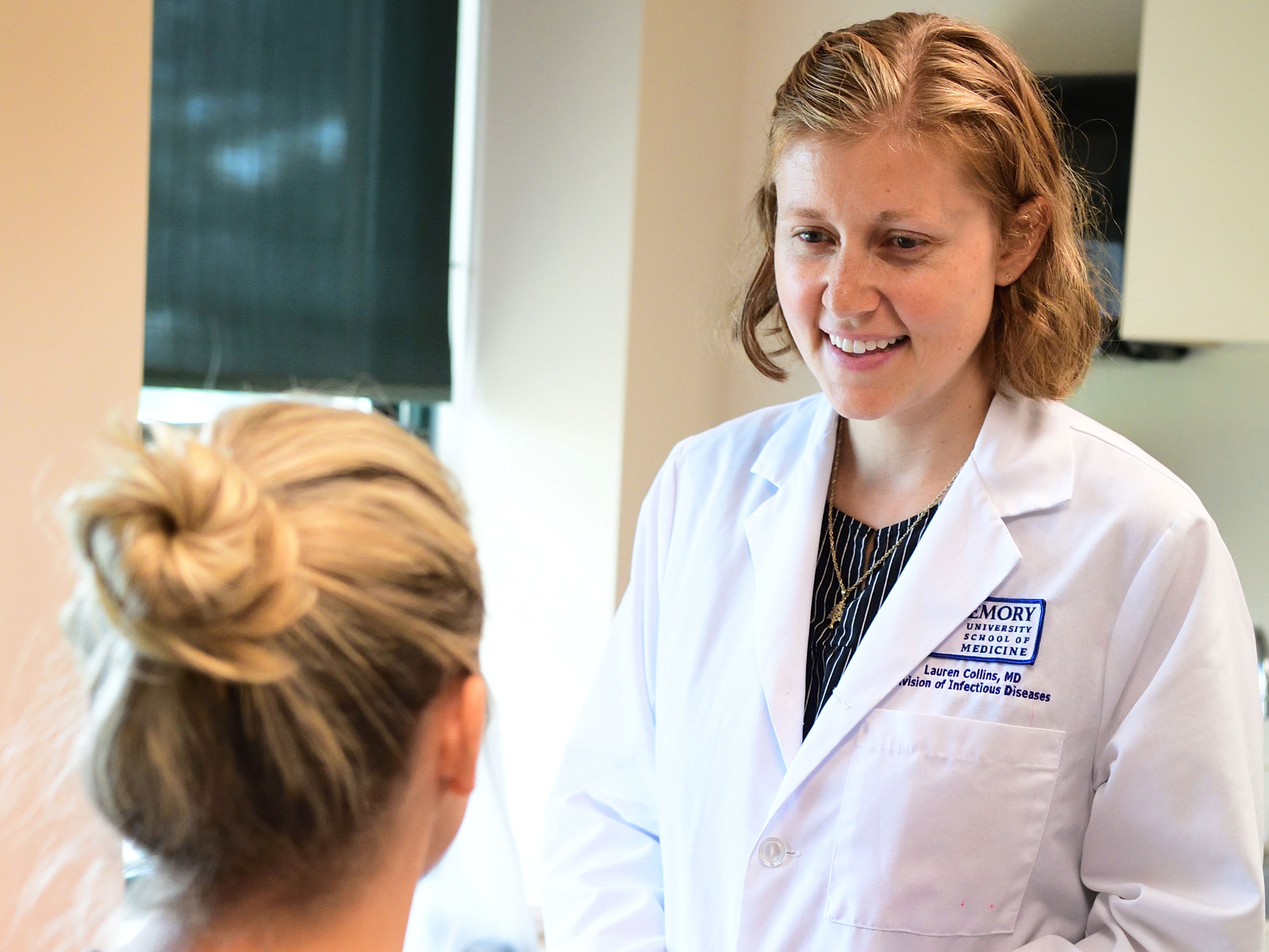Recent Georgia CTSA TL1 Trainee Focuses Study on Improving Care and Outcomes of Persons with HIV

Lauren Collins, MD, recent Georgia CTSA TL1 trainee and scheduled to graduate with a Master of Science in Clinical Research (MSCR) degree in spring 2020, gave an oral presentation at IDWeek 2019 in Washington, DC, entitled, The Prevalence and Burden of Non-AIDS Comorbidities in Women with or at-risk for HIV Infection in the United States. In this study, Collins and her colleagues found the non-AIDS comorbidities burden was high in both HIV+ and at-risk HIV- women, but higher in HIV+ women overall and in certain age groups. These findings have complex implications for clinical care, medication management, and healthcare screening that must be further examined in this population.
Dr. Collins is a Fellow, Emory University Department of Medicine, Division of Infectious Diseases. Her primary mentoring team includes Dr. Igho Ofotokun and Dr. Anandi Sheth, co-principal investigators of the Women’s Interagency HIV Study (WIHS). The team’s research interests include the translational and clinical investigation of co-morbidities experienced by persons with HIV (PWH) with an emphasis on vulnerable populations including women and the Southeastern U.S. epidemic of HIV/AIDS. Current projects are focused on defining the prevalent and incident burden of non-AIDS comorbidities in women with HIV in the U.S. and characterizing sex differences in the burden of non-AIDS co-morbidities in PWH. Dr. Collins has also had the opportunity to investigate the emergence of clonal invasive nontypeable Haemophilus influenzae in HIV-positive young black men who have sex with men in Atlanta using data from the Georgia Emerging Infections Program (EIP) under the mentorship for Dr. Monica Farley. Collins presented this work at the 10th International AIDS Society Conference on HIV Science in Mexico City in July.
In addition to these presentations, Dr. Collins has three first-author publications in press, with a fourth recently accepted at a prominent medical journal. She is currently writing her MSCR thesis and preparing an application for a career development award. Building on her MSCR thesis work, she will be focusing on the development of innovative strategies and tools to screen for non-AIDS comorbidities in persons with HIV with the goal of early clinical intervention to mitigate comorbidity risk and burden in this high-risk, aging population. Collins’ future goals include becoming an independently-funded academic clinical investigator focusing study on improving the clinical care and outcomes of persons with HIV. She is specifically interested in the screening, management and prevention of coinfections and comorbidities driving disease burden in aging women and men with HIV.
Collins remarks, “My experience as a Georgia CTSA TL1 trainee has been incredibly rewarding and productive. I learned a tremendous amount from our very dedicated faculty during the year of intensive coursework; gained skills in epidemiology, biostatistics and grant writing primarily; had the opportunity to present my research regionally, nationally and internationally; and developed collaborations with internal and external peers and faculty to advance our research agenda.”
The Georgia CTSA TL1 Program provides outstanding opportunities for clinical and translational research training for predoctoral and postdoctoral trainees. The program is focused on providing didactic and mentored research training for predoctoral and postdoctoral trainees interested in a career focused on clinical and/or translational research relevant to human health. The Georgia CTSA is dedicated to providing predoctoral and postdoctoral trainees with state-of-the-art scientific knowledge, tools, and methods to improve human health through rigorous clinical and translational research training. Through the TL1 Program, the Georgia CTSA will increase the translational research workforce and enhance career development of future leaders of the biomedical research workforce, a major mission of NCATS and NIH. To learn more, visit the Georgia CTSA TL1 Program Overview.